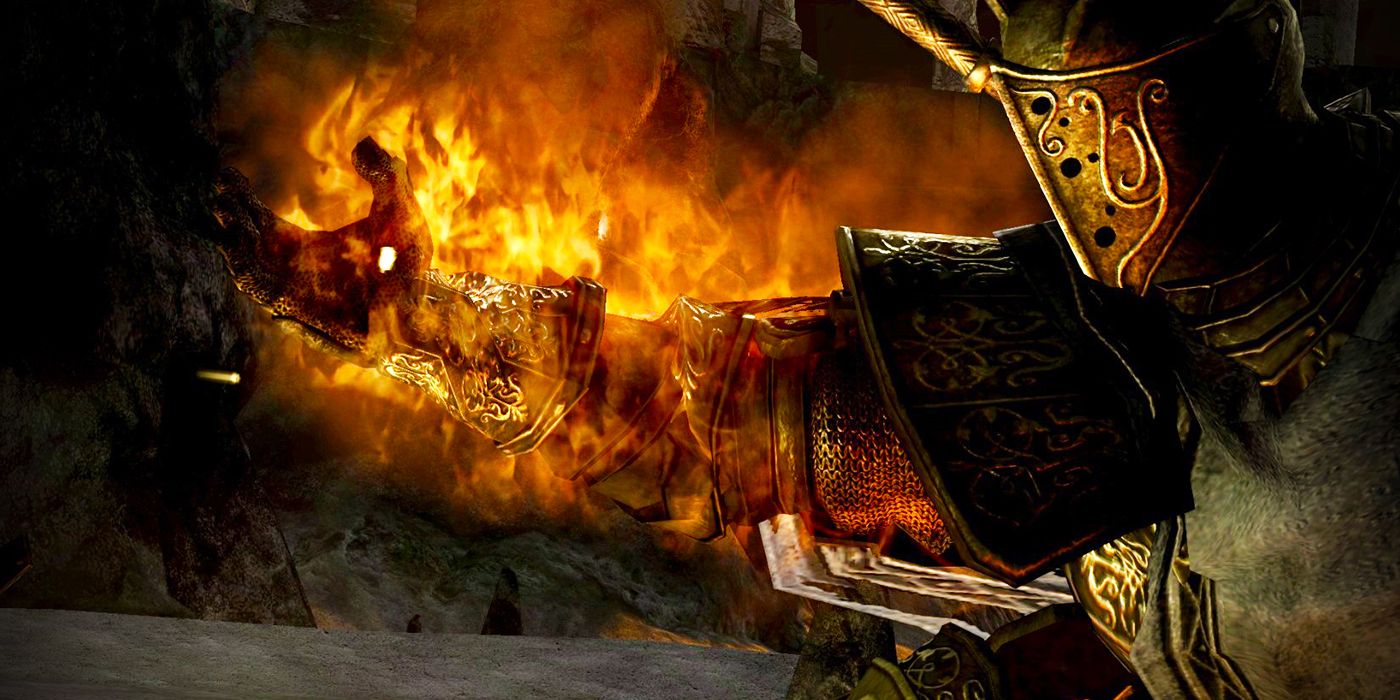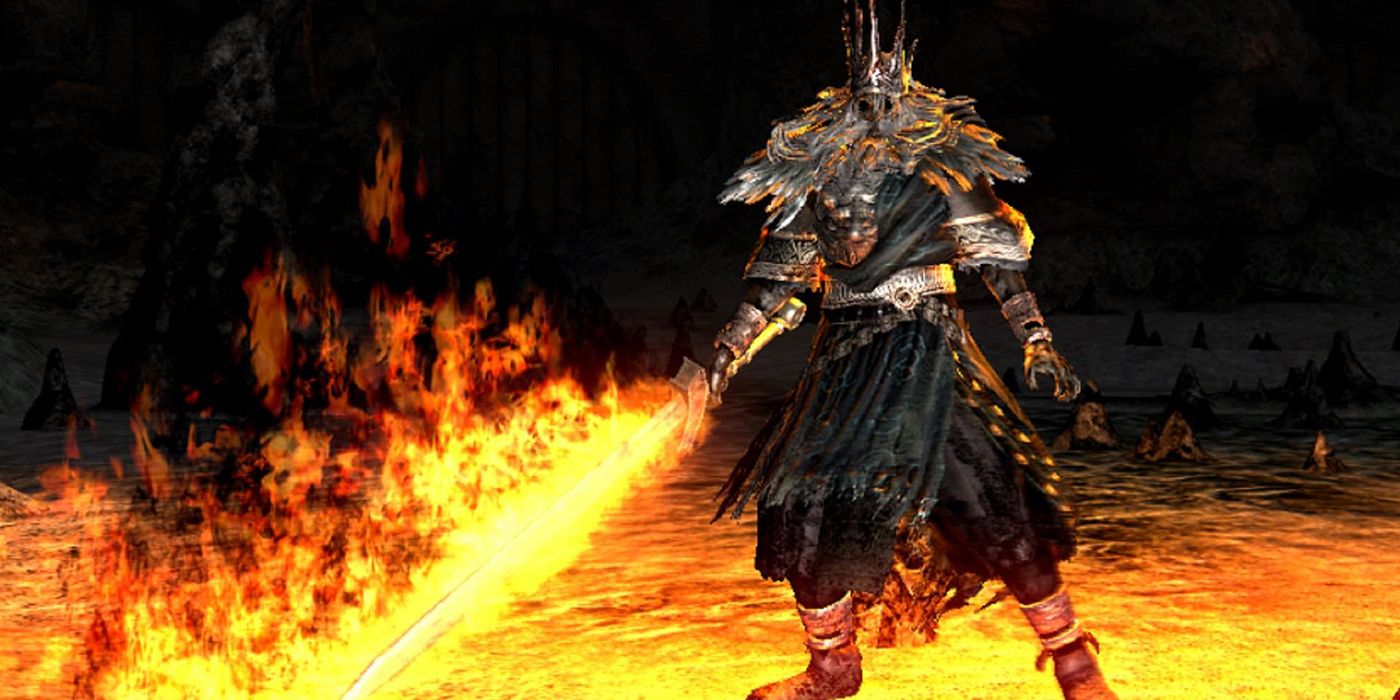
There are two endings players can choose from in Dark Souls, but only one of them is considered to be the "good" ending. Which ending is legitimately better than the other is still under debate, but the one many fans of the Dark Souls series herald as the better alternative requires the main character to sacrifice themselves in order to perpetuate the Age of Fire and maintain the current status quo.
[Warning: Dark Souls spoilers ahead]
Dark Souls takes place in a dark, bleak, and collapsed ruins of the Kingdom of Lordran as players are tasked to slay enemies and collect their souls. This is done in order to provide the protagonist with a choice: continue to spread the Curse of the Undead or allow it to fade away. The curse prevents anyone from truly dying, but eventually leads the afflicted into a state of madness and decay known as "Hollowing". At the end of Dark Souls' story, players may choose whether to reignite the First Flame and continue this era or allow the flame to fade and usher in the Age of Dark.
No matter how players journey through the world of Dark Souls, they will always be faced with the same final boss fight: Gwyn, Lord of Cinder. Gwyn was the first to light the flame and bring about the Age of Fire, the Age of Gods. His fear of humanity and the Age of Dark led him to sacrifice himself to the flame, prolonging the era far beyond what was originally intended. When the player successfully defeats Lord Gwyn, a bonfire will appear where he has been slain. The protagonist, the Chosen Undead, may link the fire and sacrifice themselves and their Humanity to the flames, or simply walk away. The "good" ending of Dark Souls depicts the fire spreading across the player before engulfing the entirety of the Kiln of the First Flame before the screen fades to black.

Selecting this ending ensures that the prophecy of Kingseeker Frampt is fulfilled and the Age of Fire is continued. The core premise of Dark Souls' gameplay is collecting souls in order to strengthen yourself. The fuel from the fire stems directly from the souls the player has collected and ultimately acts like wood to kindle the flame and keep it lit for another era. During this extension of the Age of Fire, Gods will continue to rule and humanity will stabilize. Given that the process of Hollowing is a consequence of the First Flame starting to die out, reigniting it allows for humanities darkness to stay at bay. The player takes on the same role as Lord Gwyn and eventually, once the flame begins to die out once again, someone else will need to step up and decide whether the Age of Fire continues or whether the Age of Dark should begin.
The Age of Dark is something that is overall quite unknown to the many in-game characters that populate Dark Souls. Should the player choose to not reignite the First Flame, they will become the fabled Dark Lord and usher in the Age of Dark. What this entails is a mystery, but the lore stipulates that this new era is the fall of the Age of Gods and the rise of humanity, specifically those who possess Humanity. This core theme prevails across all the Dark Souls titles, given that each takes place during the Age of Fire. Whether or not prolonging the Age of Fire again and again is the right option, the player will need to make that decision for themselves.
Dark Souls is rarely very clear with what its story means and how it should be interpreted. Given the martyr-like journey the player takes as the Chosen Undead, the true "good ending" is determined by what they feel is the right thing to do. Future games in the series deal with an identical choice; reignite the First Fire or let it finally die out. Since every game takes place in an Age of Fire, it seems that sacrificing yourself to the flame is the ideal ending for Dark Souls.
from ScreenRant - Feed https://ift.tt/39fUNgW


0 Comments